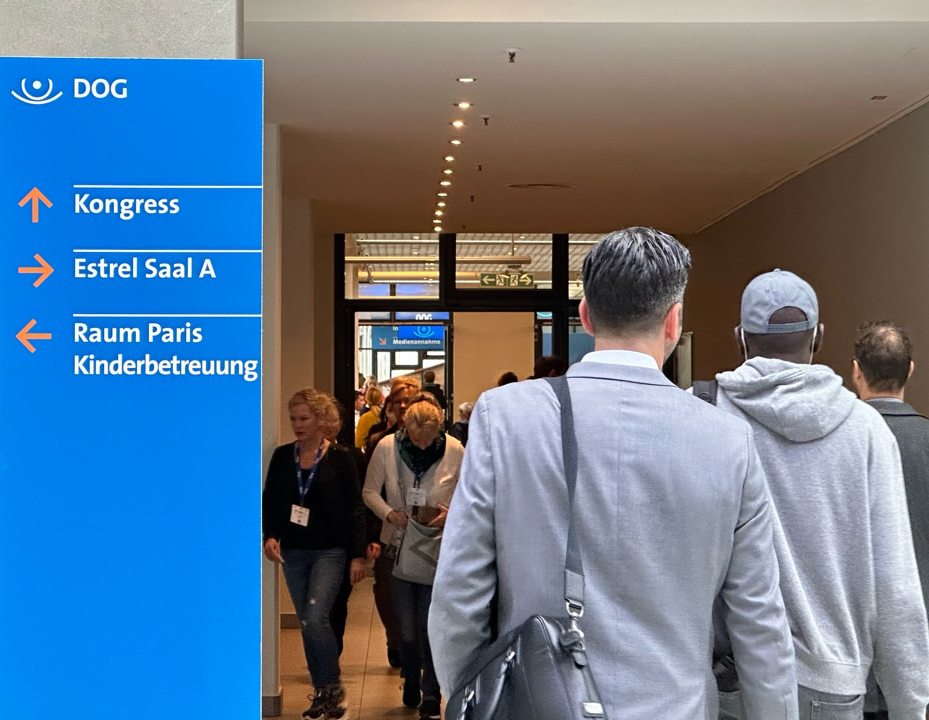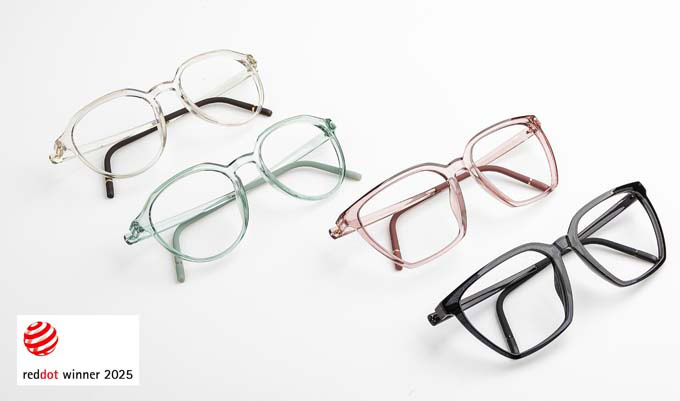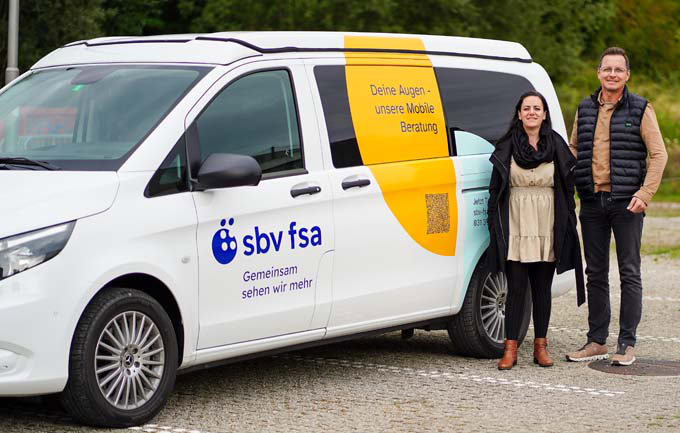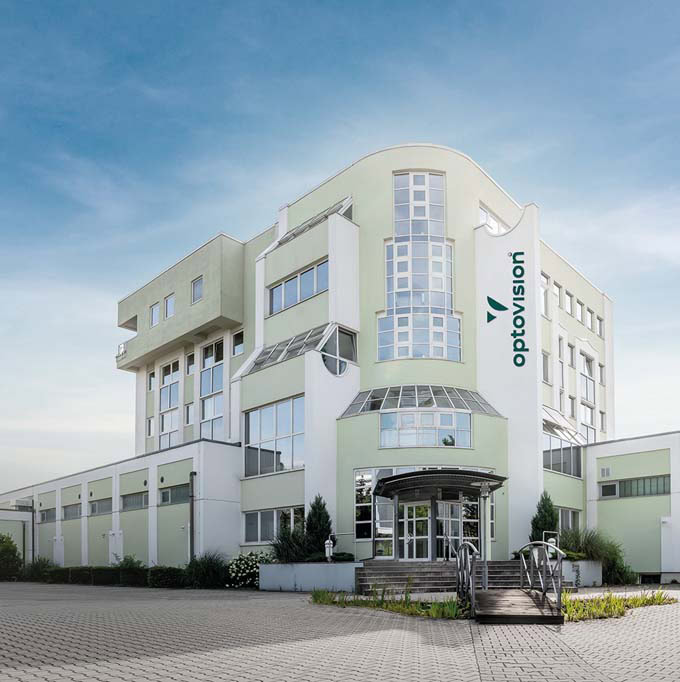Back to old greatness - personal exchange is more important than ever
The congress of the German Ophthalmological Society (DOG) has returned to its pre-pandemic size: From September 28 to October 1, 2,966 professional participants attended DOG 2023, with a total of 4,628 visitors flocking to the Estrel in Berlin. "The great response confirms that personal exchange is more important than ever," summarizes DOG President Professor Dr. med. dr. h.c. Nikolaos Bechrakis. In addition to the keynote lectures, the "Highlights in Translational Science" format was one of the highlights of the annual conference.

Bechrakis had set a special focus with the topic "Leadership in ophthalmology through humanity and competence". "A role model is more convincing than a thousand instructions," explained the DOG President in his opening speech. Being a role model includes "working to ensure that others get further than you do." In order to achieve this goal, the DOG has founded an academy for managers, to which doctors up to the age of 45 can apply. Over the next 12 months, the 16 participants will be taught skills for the leadership of tomorrow in 6 modules.
The Albrecht von Graefe Lecture by Professor Dr. Norbert Pfeiffer on the topic of "University ophthalmology in the 21st century: Quo vadis?". Further keynote lectures were given by Professor Dr. Tero Kivelä and Dr. David Yorston. Tero Kivelä, a researcher from Helsinki, spoke about ways to reduce metastasis in uveal melanoma; the British scientist Yornston addressed the question of how vision can be further improved after retinal detachment. All sessions in the "Highlights in Translational Science" series were very well attended. "This success shows the great potential that lies in the exchange between clinical and basic science," says Bechrakis.
The "DOG Updates - State of the Art" training format has proven to be a firm fixture, which once again met with strong interest, as did the case conferences - above all the popular Consilium diagnosticum. However, many other symposia, lecture sessions and company symposia also recorded pleasing attendance rates. In total, ophthalmologists were able to attend the presidential address and three keynotes, ten DOG Updates, eight International Expert Talks, 61 symposia, 39 courses and 12 workshops, 22 free lecture sessions, 68 working sessions and one patient symposium. In the industry exhibition, 98 exhibitors presented innovative products and services, and 24 company events also took place.
The supporting program also featured a special highlight this year: On Friday, the DOG in Concert took place for the 20th time. To mark this anniversary, works by Georg Friedrich Händel, Johann Sebastian Bach, Carl Philipp Emanuel Bach and Ulrich Roever/Michael Korb were performed in the Passionskirche in Berlin-Kreuzberg. The benefit concert in aid of the Auge Foundation took place under the direction of Juan Pag¨s. In addition to the musical performances, the sporting achievements were also impressive. The Eye Foundation's charity "Eye Run" on Friday, for which over 130 participants had registered, was a five-kilometer run at 7.00 am. Finally, on Sunday, the challenge cup of the "EyeCycle" charity bike race was presented to the team from Bonn University Eye Hospital that cycled the most kilometers.
In addition, members of the Executive Committee were elected in Berlin as scheduled.








